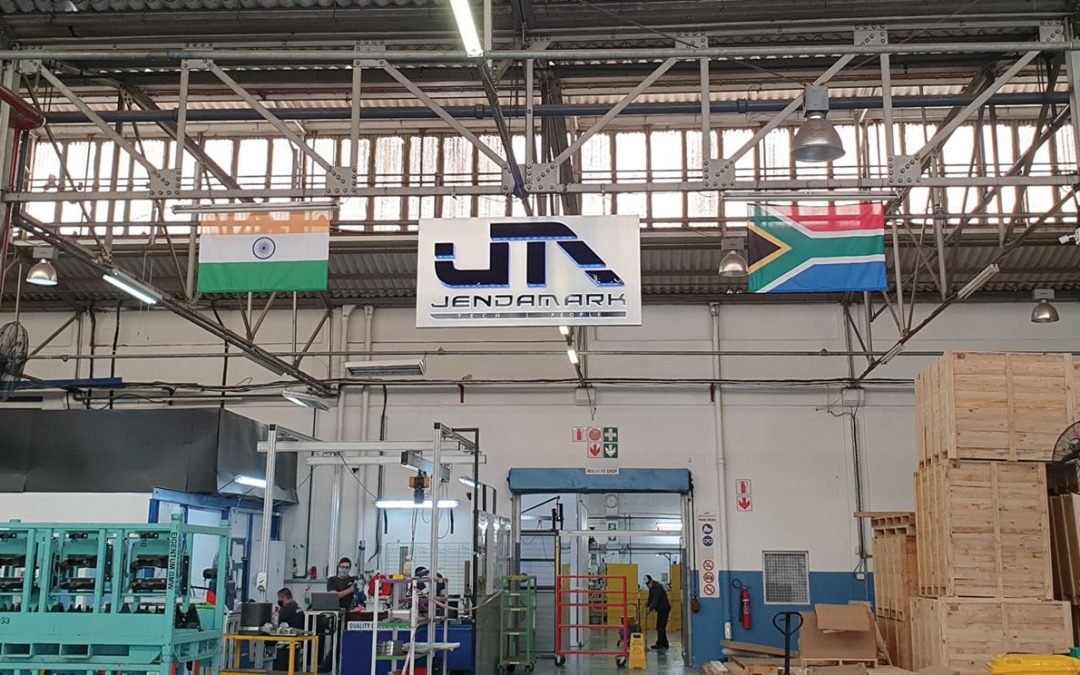Pandemic-related lockdowns and global supply chain interruptions have highlighted the need to localise – and digitalise – vehicle manufacturing processes.
According to a report by Deloitte about the impact of Covid-19 on the international automotive sector, 80% of global vehicle production involves some form of “Made in China” parts.
For developing countries like India and South Africa, deepening local supply chains could lessen this reliance, strengthen the economy and create jobs for a growing population. But the practicalities of sourcing skilled labour and ensuring that locally made products are competitive in terms of cost and quality have left suppliers struggling to implement the right solutions.
As major vehicle-producing countries in their respective regions, both India and South Africa are ripe for a smart manufacturing revolution to address these issues. Post-Covid-19, the global smart manufacturing market is projected to grow from US$181.3 billion in 2020 to US$220.4 billion by 2025.
SA MASTERPLAN
In South Africa, vehicle and component production accounts for almost a third of the country’s manufacturing output. While the Original Equipment Manufacturers and their Tier 1 component suppliers are well established, Tier 2 and 3 suppliers are underdeveloped and contribute just 20% to the automotive value chain.
The government’s new South African Automotive Masterplan, which aims to make the sector globally competitive by 2035, outlines ambitious targets such doubling direct employment and vehicle production, and increasing average local content in vehicles from 39% to 60%.
“Covid-19 will certainly cause job and production losses, and delay implementation of the plan, but the intention is clear,” says Jendamark SA’s sales and digital services director, Yanesh Naidoo.
“The plan creates serious opportunities for localisation of our supply chain, especially for black entrepreneurs, but we need to adopt new technologies and skills fast.
“The Odin Manufacturing solutions that we’ve developed are uniquely geared to the operating challenges within a developing economy. They are designed to assist deep localisation and don’t need high-end IT infrastructure. Most importantly, they don’t cause job losses,” explains Naidoo.
He points to solutions like the Odin Workstation operator guidance system and Odin Maintenance apps, which were designed to support human operators and technicians.
“Technology can equip even semi-skilled operators to perform complex tasks with minimum training, and ensure that production processes become faster, more accurate and efficient.”
SELF-RELIANT INDIA
Similarly, the Government of India’s stimulus package and the Atmanirbhar Bharat (Self-Reliant India) movement have provided the impetus for manufacturers to boost local production.
“The Indian automotive industry was at a crucial juncture when the pandemic hit,” says Jendamark India director and CEO Himanshu Jadhav.
“India had committed itself to move from BS4 to BS6 emission norms from 1 April – a seemingly impossible task was on the brink of reality when the national lockdown was announced.
“With the supply chain cut off, and the border stand-off with China creating difficulties, it exposed the industry’s dependence on other countries, as many things from raw material to complex electronic hardware were imported.
“In our own business, we were planning to bring some complex equipment from China for one of our EV customers. But we took up the challenge to ‘Make In India’. We looked for the right material and processes, scouted for local partners with similar experience, and it was a success.”
Jadhav says an over-reliance on cheap imports, in the form of critical inputs and raw materials, has created a problem for many industries.
“Unless there is input substitution where India either identifies other sources or augments domestic production, there will be continued reliance on China. We know that there are limiting factors but digitalisation can fast-track the process.”
DIGITAL JOURNEY
Jadhav says the manufacturing sector is already on a journey to digital transformation but that Covid-19 has been the catalyst to accelerate the adoption of digital technology.
“Localisation and digitalisation are now even more important than ever, as the pandemic has exposed the vulnerability of companies, industries and countries that have not embraced these factors.
“Smart technologies allow businesses to streamline processes and increase efficiency, while helping to revive the economy and restore normalcy.”
He believes localisation of the value chain from the bottom up, with intelligent automation, can help to meet uncertain demand and huge cost pressures in times such as these.
“Digital transformation is preparing the manufacturing industry for current and future interruptions or black swan events by plugging gaps across production, distribution and management.
“Moving towards digital is not a choice any more but a necessity for survival,” says Jadhav.
“New technologies are helping manufacturers to increase efficiency, enable high levels of product customisation, and improve speed to market. Covid-19 has changed the narrative around automation technology from ‘good to have’ to ‘must-have’.”
Organisations that show agility and adopt the right technologies will have a competitive advantage and a sustainable future, says Jadhav.
“It’s with such organisations that Jendamark wishes to partner and share our Odin Manufacturing ecosystem and digital services.”

